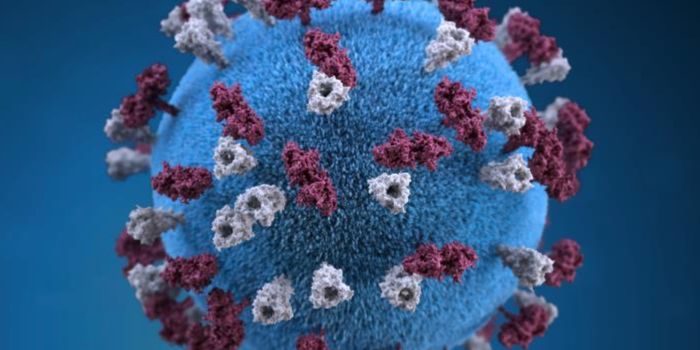Respiratory Syncytial Virus (RSV) Can Infect & Damage Nerves
Respiratory syncytial virus (RSV) is a common infection that can affect children and older adults. Symptoms can include sneezing, coughing, and fever, and the condition can also become more serious and may lead to pneumonia or bronchiolitis. Scientists have now shown that RSV can directly infect nerve cells and trigger inflammation that may damage nerves. The findings, which may be the first to demonstrate that RSV infects neurons, have been reported in The Journal of Infectious Diseases. It may help explain some neurological symptoms that have been observed in young RSV patients.
RSV is most common respiratory virus in early life. It also affects the elderly, noted Dr. Giovanni Piedimonte, the Tulane University vice president for research and professor of pediatrics, biochemistry and molecular biology.
Previous work has demonstrated that RSV can be found in the spinal fluid of some children who have experienced seizures. As many as 40 percent of kids under age 2 who have been infected with RSV have shown signs of acute encephalopathy, which is a form of brain damage that may cause cognition problems, confusion, or memory loss.
In this study, the researchers used stem cells to generate neuronal cultures that were then exposed to RSV. This showed that the neurons could be directly infected with the virus. The investigators also determined that this infection triggers the release of inflammatory molecules called chemokines.
Even when only low levels of the virus were found in neurons, the nerves were hyperactive when stimulated. Over time, the nerves exhibited increased signs of neurotoxicity and began to degenerate. This hyperreactivity may explain why pediatric RSV patients are at increased risk of developing asthma.
"Until this study, the theory was that the inflammatory response was indirectly activating the nerves," Piedimonte said. "This study shows that not only does that happen, but the virus can penetrate directly into the nerves."
Even though it cannot infect spinal neurons directly, RSV also appears to be able to move into the spinal cord after infecting peripheral nerves. It may also be able to move past the blood brain barrier to infect the brain this way, Piedmonte suggested. RSV might have some association with developmental neurological disorders.
Because of a lack of effective treatments and the potential for long-term complications from RSV infection, prevention is important. Luckily, people can now take advantage of the vaccines that were approved by the FDA last year.
"This adds a new dimension to the importance of RSV vaccines for both the elderly and mothers to protect their babies," Piedimonte said. "If indeed it's confirmed in future studies that viruses like this are able to access the central nervous system, that opens a huge Pandora's box."









